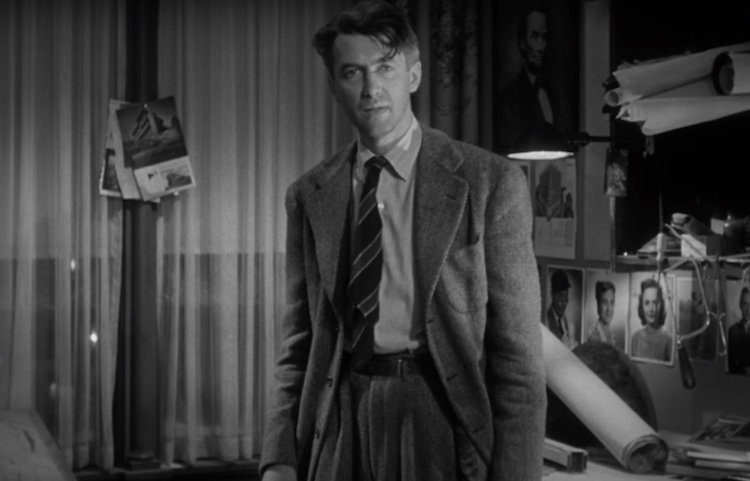
It’s a Wonderful Life is arguably the most classic of classic Christmas movies. What’s not to like? It’s got the talented directing of Frank Capra, the endearing acting of Jimmy Stewart, a compelling plot device that invites viewers to imagine what the world would be like without them, and plenty of feel-good sentiment.
Or, at least, there’s plenty of feel-good sentiment at the end. The other parts of the movie though . . . well I’d long noticed that the bulk of the film actually made me feel rather frustrated and depressed — really, rather sad for George Bailey.
After watching it again recently, I’ve been thinking more about why that is, and have come to the following conclusion: George Bailey is a truly tragic figure — an overly passive man whose sacrifices and sufferings aren’t entirely necessary, even from an ethical and moral standpoint.
When George’s father dies and the board of the Bailey Brothers Building & Loan Association votes to keep it going as long as George will take the reins, his deciding to accept the position — to get things in order, avoid a disruption in services, continue his father’s legacy — is arguably the ethically upstanding thing to do. At least for a time. George makes the very sensible, practically-wise compromise between following his dream of traveling the world and going to college, and not wanting to see the Building & Loan dissolved by Mr. Potter, by striking a deal with his brother, Harry: George will run the association for now, and Harry will go to college; then, after Harry graduates, he’ll come back and take over, and George will go to school.
The decision George makes later on to use his and Mary’s honeymoon savings to cover a bank run is also an ethically generous choice. One can argue that enabling people to own a home, rather than rent — the enabling of what is more of a modern privilege than a basic human need — doesn’t rise to the level of a moral obligation. But, it’s still a thoroughly decent thing to do.
But let’s visit a decision which comes in between these two, and that, had it been done differently, wouldn’t have even put George in the position of having to make that second decision, and to deal with all the other dream-crushing, spirit-suffocating episodes that follow.
When Harry returns from college with a job offer from his new father-in-law to work as a researcher for a glass factory, he says he’s willing to fulfill his and George’s agreement, and take over the Building & Loan as planned, but . . . but . . .
While with the aforementioned dilemmas, there was more moral weight on one side of the equation than the other, that isn’t so in this case. Harry is said to have a genius for research, but George’s own father says he has a talent for architecture. Neither brother has a greater or lesser claim on following their vocational desires. Neither is more or less obligated to give up on the path they wish to pursue.
Perhaps it’s “nice” of George to decide to sacrifice his dream to enable Harry to pursue his, but it seems that he does so less out of moral conviction, than the inability to have a difficult conversation with his brother. George accepts Harry’s implicit dismissal of their deal without even an attempt to talk about it. He’s afraid of confrontation and unable to assert himself.
Better it would have been for George to try to hold Harry to their agreement. If Harry had pushed back, if both brothers steadfastly and understandably did not want to take over the Building & Loan, together they then could have decided on another plan. Maybe George would stay on a year longer, with the agreement that over that time, he and Harry would find a suitable, non-familial replacement willing to run the organization. Maybe he and Harry would decide that while providing affordable loans and housing would add something of value to the world, fulfilling the vocations for which their particular talents were uniquely suited would add value to the world as well, in a different way; maybe they would decide that putting their unique talents to use was itself a moral obligation, and that squandering those talents was in fact the immoral choice to make. They may also have reasoned, quite reasonably, that — even if the film suggests otherwise — the closing of the Bailey Brothers Building & Loan would not have invariably led to the rise of Pottersville.
As Bertrand Russell
No comments:
Post a Comment